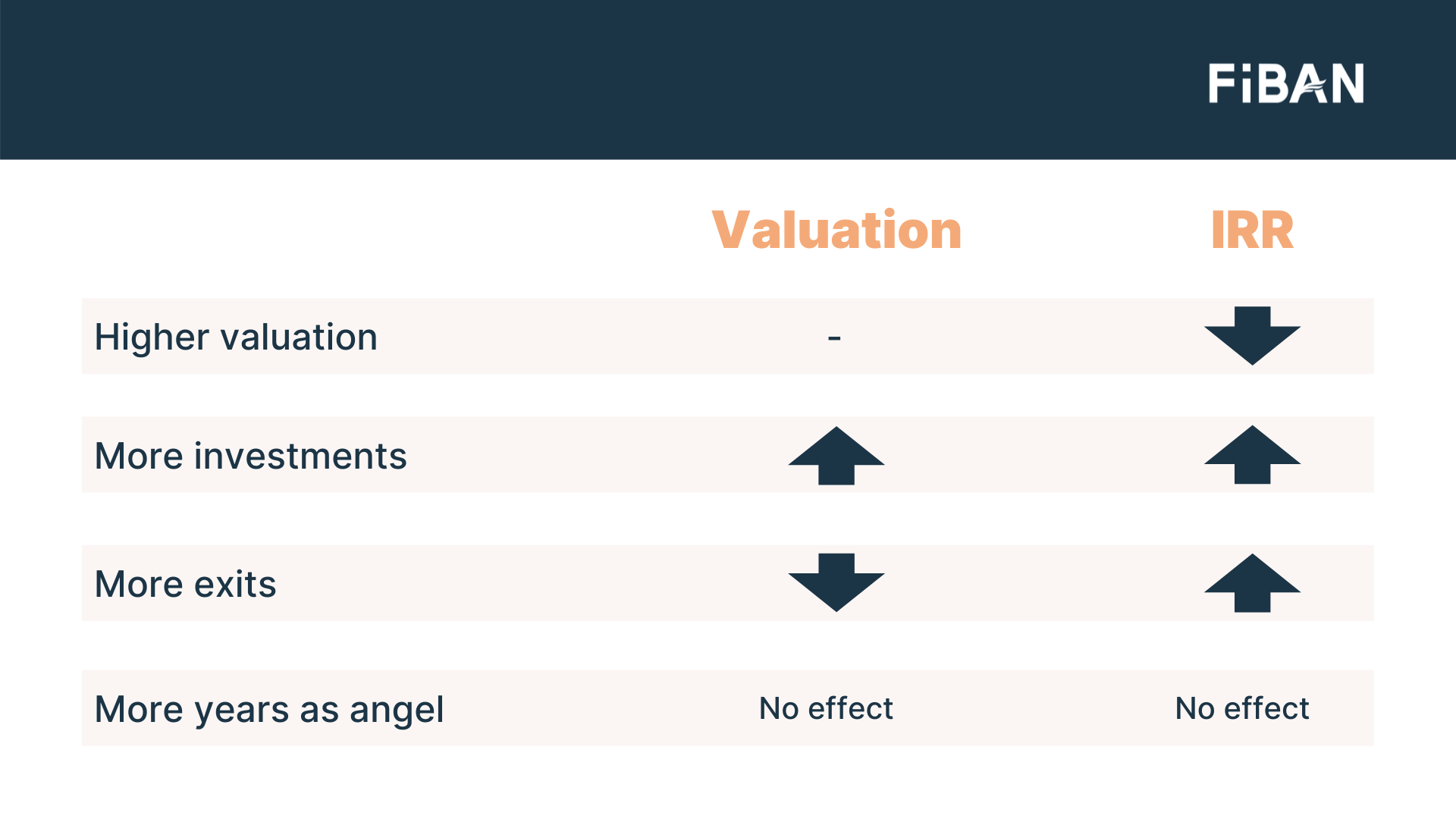
At the time of investment, valuation of the company is one of the main drivers of return for business angels. Nevertheless, it is generally poorly understood how business angels should approach the valuation negotiation in order to maximize investment returns. Business angels may use the study as a starting point to reflect on and optimize their investment strategy for financial returns.
The study, implemented as a Master’s thesis at Aalto University by Oscar Björklund, analyzes a globally unique data set previously not available for researchers. It includes 1009 business angel investments by 258 Finnish business angels from 2013-2020, sourced from FiBAN’s annual survey.
“I am impressed with the recent efforts of FiBAN to develop a systematic and comprehensive data collection and analysis process as it enables high-quality research and facilitates learning and the development of the business angel investment market”, comments Markku Maula, professor of Venture Capital at Aalto University and supervisor of the study.
Lower valuation correlates with higher returns – Angel’s experience of exits affects investment behaviour
Valuation of pre-revenue companies is often referred to as “more of an art than science”. The study investigated how business angels’ experience affects the valuation of their portfolio companies and how this valuation is linked to investment returns. The study shows that lower negotiated valuation at the investment stage will correlate to higher investment returns.
Based on the study, angels who have made many investments invest at higher valuations, while angels who have made many exits invest at lower valuations. “Business angels with little experience of exits seem to be more motivated by non-financial considerations, but as business angels gather experience from exits, they seem to take a portfolio-oriented approach and their motivations shift more towards financial considerations. Put differently, experience of exits have an effect on investment behaviour. This underlines the significance of exits for business angels”, remarks Oscar Björklund, author of the study and investment analyst at FiBAN.
Angels’ returns increase through activity – Years as angel has no effect on returns
Finally, the study suggests that as angels gather investment experience, their returns increase. Being active as an angel thus has a significant educational effect on investing, while years of business angel activity have no effect on either valuations or returns. This demonstrates that the most probable way to increase returns is by making many investments and that the returns are not affected by how long you have been investing in startups.
“Therefore, an institutional setting that encourages multiple angel investments is important for maintaining a vibrant startup ecosystem and a prospering national economy”, continues Amel Gaily, Managing Director at FiBAN.
More information:
Oscar Björklund, thesis author, Investment Analyst, FiBAN, +358 45 276 6300, oscar.bjorkund@fiban.org
Amel Gaily, Managing Director, FiBAN, +358 50 365 5019, amel.gaily@fiban.org
Access the study in PDF format here.